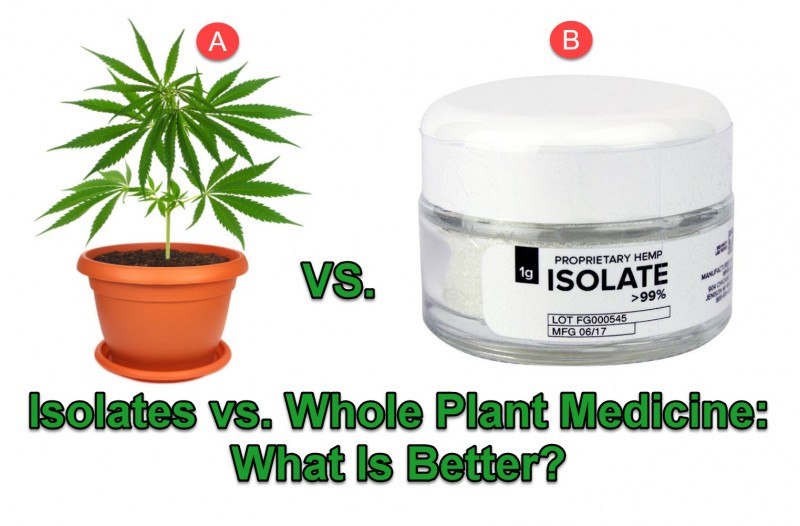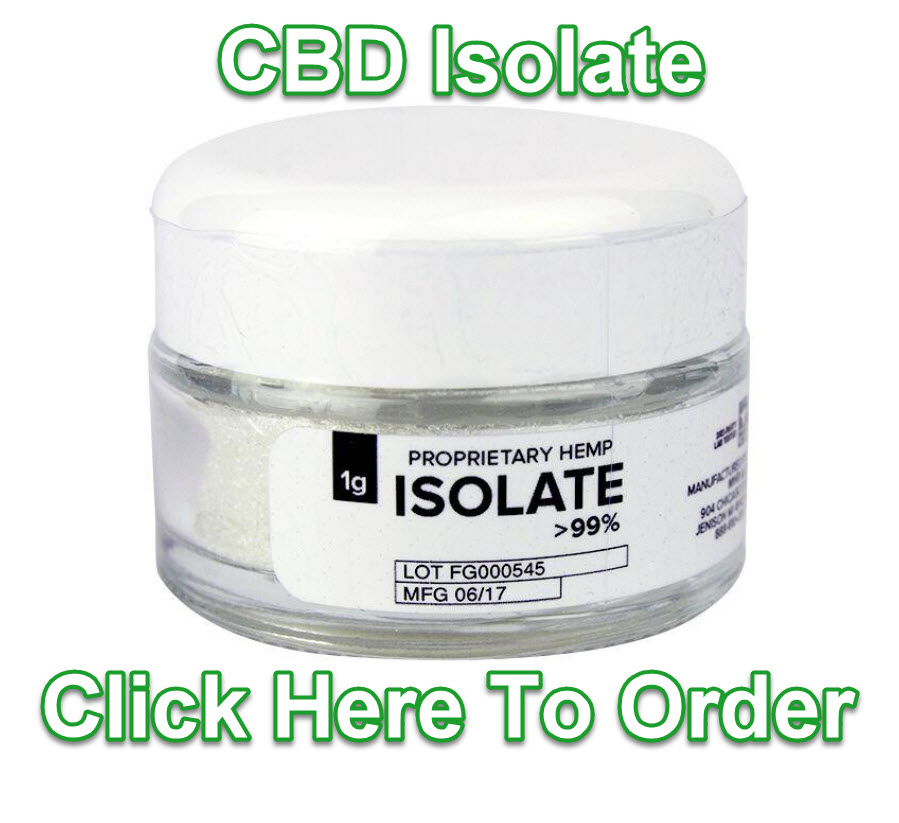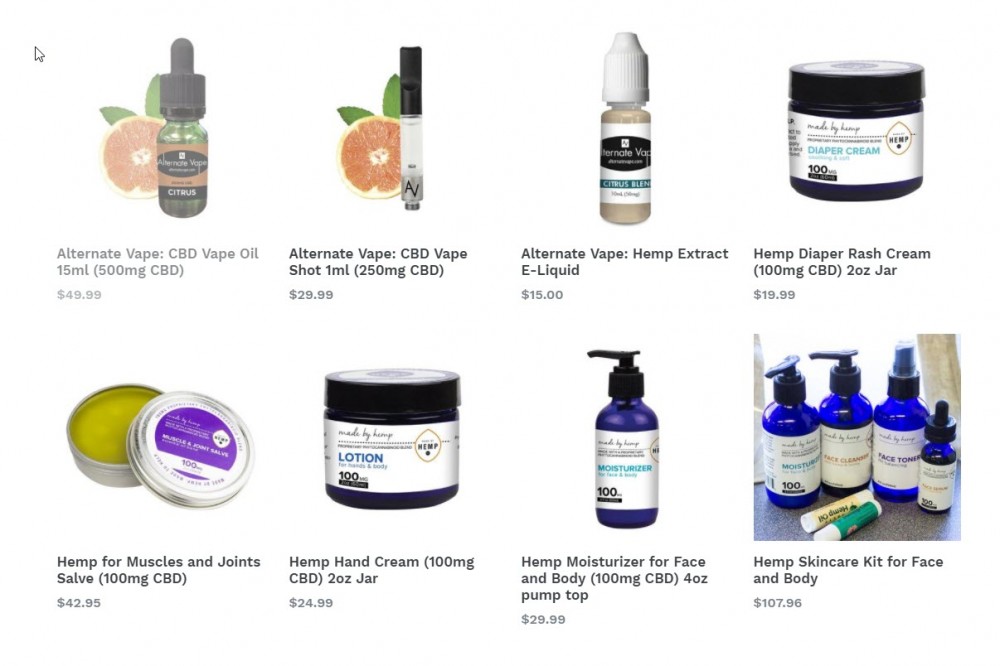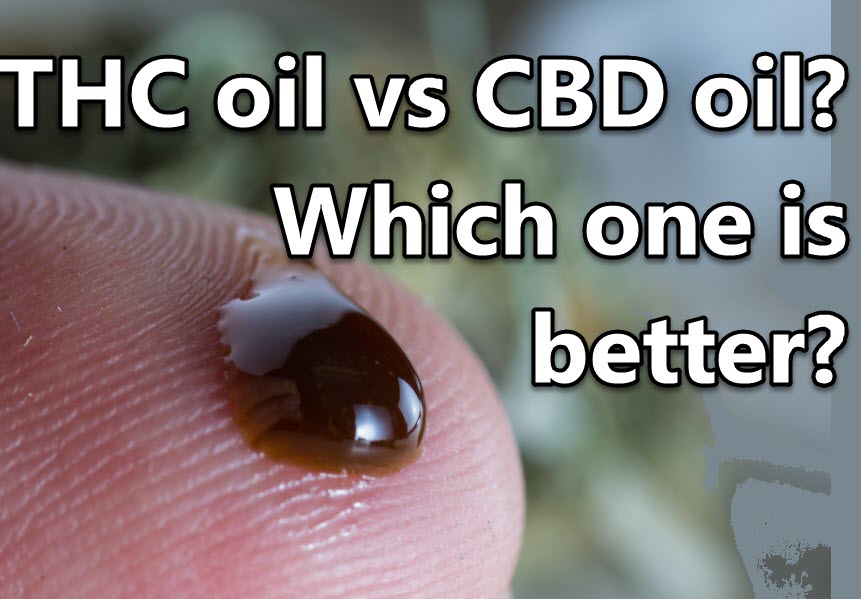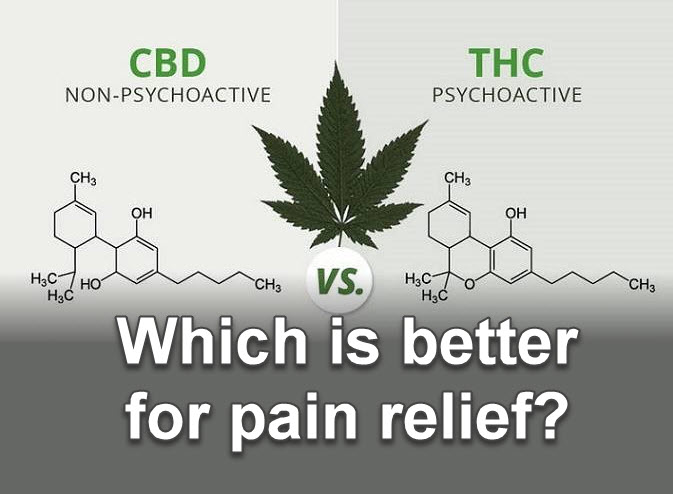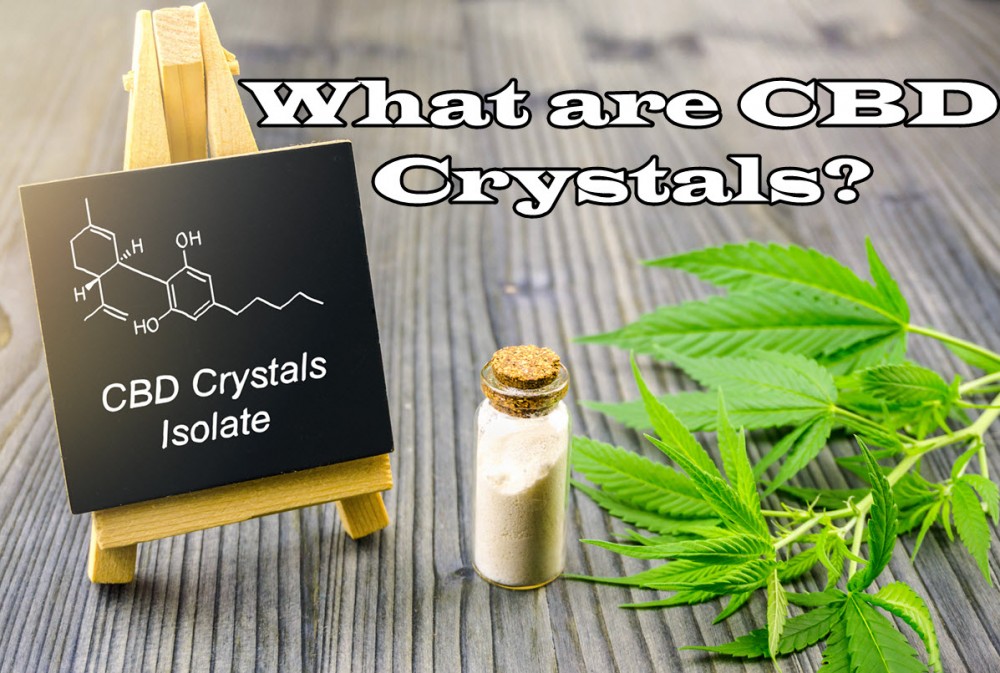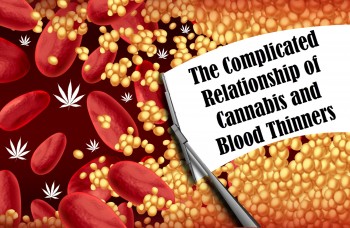Isolates vs. Whole Plant Medicine: What Is Better?
Whole Plant Medicine or CBD Isolates, Which is Better? from CannabisNet on Vimeo.
The legal cannabis market offers a plethora of choices for today’s cannabis consumer. Whether you’re using cannabis for recreational or medicinal needs, the choices out there are limitless – from THC edibles to the sheer variety of strains, choosing the right product can get a little overwhelming.
One distinction among the products though, is that it’s either an isolate or whole plant medicine. Isolates are defined as pure forms of cannabis compounds. The 2 most common forms of isolates are CBD (cannabidiol), and THC (tetrahydrocannabidiol). CBD isolates are used for its medicinal properties, or just to support overall well-being. Many prefer CBD isolates over whole-plant medicine because it’s non-psychoactive, which means that it won’t get you high. Examples of CBD isolate products include CBD powders, crystals, oils, edibles, and capsules. There are also many CBD isolates on the market that are derived from hemp.
CBD: Isolate vs. Full Spectrum
CBD isolates are made through advanced extraction technologies that allow manufacturers to isolate it from high CBD strains such as Cannatonic or Charlotte’s Web. CBD isolate is the purest form of this beneficial cannabinoid, which can be compared to the pure THC distillates that are also going around.
CBD isolates also come in full-spectrum forms. When you encounter a “full spectrum CBD product”, this means that it was manufactured using an extraction process that also includes other therapeutic cannabinoids found in the cannabis plant.
Benefits of CBD Isolates
CBD is the most therapeutic cannabinoid in cannabis, and it doesn’t give users a high. Just some of the benefits of using CBD in its purest form (they usually contain 99.9% CBD and 0.1% water) through isolates is enjoying potent relief from inflammation, anxiety, depression, seizures, epilepsy, nausea, vomiting, fights cancers and tumors, and aids in prevention of neurodegenerative disease. CBD isolates can also be used to treat diabetes, psychosis, schizophrenia, Parkinson’s Disease, chronic pain, neuropathic pain, and more.
CBD isolates may make the user feel relaxed and calm, but not high. The other benefits of using CBD isolates is that it provides a precise dosing experience, and is standardized. CBD isolates can be dabbed, used on the skin, vaporized, and even smoked – there are many ways to use CBD isolate, and the only way to know what’s right for you is to try it.
Individuals who are after the medicinal benefits of CBD and nothing else will benefit from using CBD isolates over whole plant medicine.
Benefits of Full Spectrum CBD
Typically, CBD isolates also include a handful of therapeutic ingredients found in the hemp plant such as other healthy cannabinoids and terpenes as well as fiber, protein, fatty acids, and chlorophyll.
The primary constituents of the hemp plant are CBD and other cannabinoids:
Cannabigerol (CBG)
Cannabigerol is also referred to as a stem cell cannabinoid. Cannabinoids transform most of its CBG content into CBD and THC, which is why processed plant products contain a low level of CBG. CBG is non-psychoactive although it possesses powerful health benefits. It has been shown to prevent the spread of cancerous tumors. It can also help treat glaucoma because CBG is effective in reducing eye pressure while draining fluids. Other important health benefits of CBG are for inducing appetite in chemotherapy patients, treating inflammation, offers neuroprotective benefits, and may slow down the growth of colon cancer.
Cannabinol (CBN)
Cannabinol is one of the cannabinoids that promotes relaxation and sleepiness, particularly in indica strains. It has a known sedative effect, and is the strongest of all cannabinoids for this property. It has also been shown to prolong sleep time, while improving sleep quality for those with insomnia and sleep apnea.
Cannabichromene (CBC)
Cannabichromene is considered a major cannabinoid although it’s one of the least studied. However, CBC’s medicinal properties are worth mentioning. Studies show that CBC has powerful anti-inflammatory properties which are even more potent when it works with THC! Another study showed that CBC is effective in treating stress – the animal models involved in the research were more resistant to stress. CBC also aids in pain relief, although it its analgesic properties are heightened when combined with CBD and THC. It’s also worth noting that CBC has been shown to stimulate neurogenesis, which is the growth of new brain cells. Additionally, CBD helps fight anxiety, acts as an antibacterial and antifungal agent, and aids in intestinal motility.
Full-spectrum CBD products also contain beneficial terpenes such as limonene, pinene, linalool, and more.
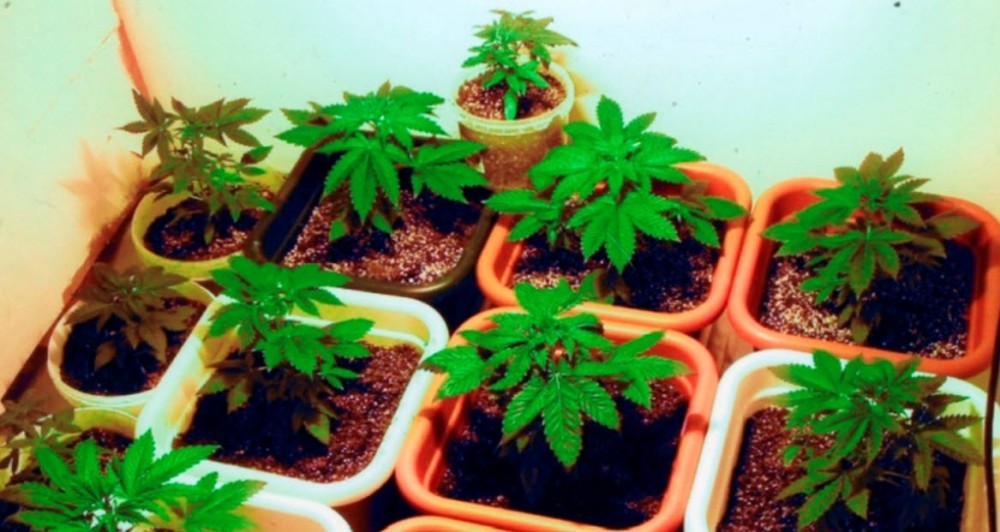
Whole Plant Medicine
Whole plant medicine refers to other forms of cannabis that makes use of the wide spectrum of cannabinoids and other therapeutic compounds found in the plant. THC and CBD are only 2 out of over 400 different compounds in the cannabis plant; a mixture of chemical compounds, cannabinoids, and terpenes all of which have their own remarkable health benefits.
Examples of whole plant medicine include smoking fresh flower, kief, hash, edibles, and full extract cannabis oil among others.
Benefits of Whole Plant Medicine
For many ailments, from acute back pain to life-threatening diseases, whole plant medicine is better because all the compounds in cannabis enhance each other’s medical benefits. This is called the entourage effect.
Research shows that CBD enhances the medicinal benefits of THC, while mitigating some unwanted effects such as the high it gives, or the anxiety it causes in some people. CBD and THC are processed by different pathways in the body, and this synergistic effect complements each other particularly when it comes to crushing pain, killing tumors, healing inflammation, and much more.
A 2009 study looking at the synergist effects of plant medicine confirmed the “pharmacological and therapeutic superiority of many herbal drug combinations in traditional medicine in comparison to isolated single constituents.” The researchers identified that whole plant medicine is more effective for 4 specific reasons:
- Ability to affect multiple targets within the body
Whole plant medicine can affect multiple targets within the body which means that it’s a multi-purpose medicine. For example, studies show that certain cannabis strains are beneficial for HIV/AIDS patients for its ability to target multiple symptoms of the condition – including peripheral neuropathy, appetite loss, insomnia, and depression. Even if you’re simply taking whole plant medicine for the purpose of overcoming anxiety, cannabis is working in your system in ways you can’t see by offering a host of health benefits such as fighting inflammation, stress reduction, protecting your brain, and so much more – hence the entourage effect.
- Ability to improve the absorption of active ingredients
Because cannabis affects everyone differently, the biochemical and physiological makeup of certain individuals make it difficult for their bodies to efficiently absorb compounds in cannabis when taken in isolation. However, whole plant medicine improves absorption through the presence of other compounds such as terpenoids, cannabinoids, and flavonoids. For example, the cannabis topicals need to penetrate two layers of the skin in order to work. But cannabinoids and water are polar molecules, which make it difficult for them to effectively pass through. Caryophyllene and other terpenoids come to the rescue – they make absorbing cannabinoids through the skin possible, allowing the user to enjoy the therapeutic benefits they need.
- Ability to overcome bacterial defense mechanisms
Certain bacteria have evolved to be resistant to antibiotics, which is why some bacterial infections and diseases can no longer be cured by conventional therapies which used to work in the past. Cannabinoids possess antibacterial properties which, when used together through whole plant medicine, are effective in treating even the most resistant bacteria. Even the non-cannabinoid compounds in cannabis also fight bacteria, offering a one-two punch in killing bacteria. These compounds work synergistically by acting on different pathways, leaving bacteria limited options on fighting back.
- Ability to minimize adverse side effects
Cannabis affects everyone differently, and while it has no real harms in terms of side effects, there are a number of unwanted effects that certain forms of cannabis have on people. The most common example is the anxiety that some consumers experience especially after smoking a strain that is high in THC. Research shows that the presence of CBD works well in mitigating the anxiety, and even paranoia, that is associated with THC content in certain strains.
Aside from the medicinal benefits of whole plant medicine, they also often have more flavor due to the terpenes and flavonoids, more nutrients, and users can choose from different effects (relaxed, energetic, euphoric, sleepy, etc.) that are available in various strains. There is no reason for cannabis consumers to choose THC vs. CBD: the best way to maximize the medicinal properties of cannabis is to allow them to work together through the entourage effect.
So which form is right for you?
The correct answer is: it depends. In the world of cannabis, there is no one-size fits all solution. Patients suffering from specific ailments will definitely benefit more from using whole plant medicine because it’s potent medicine on its own. But if you choose CBD isolates, you may prefer taking capsules as opposed to oils. The same goes for whole plant medicine – and that’s the beauty of cannabis! Experiment until you find a product or form that suits your needs best.
NEED CBD ISOLATE OR CBD CHOCOLATES OR CHEWS, CLICK HERE TO SHOP OUR STORE...
Whole Plant Medicine or CBD Isolates, Which is Better? from CannabisNet on Vimeo.
OTHER STORIES YOU MAY ENJOY...
THC OR CBD OIL, WHICH ONE IS BETTER, CLICK HERE.
OR..
CBD OR THC FOR PAIN, WHICH IS BETTER, CLICK HERE.

